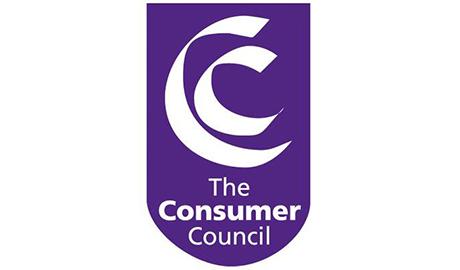Christmas Postal Tips
Check out the Consumer Council’s Christmas postal tips.
Royal Mail strike dates
Check what is happening with Royal Mail strike action. Consider how postal delays will affect you, plan ahead, post items well in advance of planned strike dates and order goods online as early as possible. View the latest Royal Mail strike action dates and information.
Royal Mail last posting dates
Royal Mail’s last posting dates within the UK are:
- Second Class – Monday 12 December
- First Class – Friday 16 December
- The last posting date for international standard mail services to some destinations including Ireland, Germany, Spain and Portugal is Wednesday 7 December. For more details on other destinations please visit Royal Mail’s website.
Other parcel operators may have different last posting dates so always ask when is the latest you can send a parcel, so you don’t miss the deadline and your friends and family receive their Christmas cards and presents before the big day.
Christmas Postal Tips
- Order online and post early. Christmas is the busiest time of the year for the postal service, so we recommend that you order online and post early to avoid disappointment.If your online shopping parcel delivery does not arrive or arrives damaged act quickly and contact the retailer immediately. Remember the retailer is responsible for the goods until they are delivered to you and should resolve the matter
- Get ready, measure up and check the weight of the item. If you are buying a parcel service online you’ll need to know the weight of the item you are sending. Some operators also require the length, height and width so be prepared. This will help to make sure you get an accurate price for sending the item and that you don’t pay unnecessary higher prices.
- Shop around for the best deal before purchasing your postage.To get the best value, post your letters and parcels as early as possible so you can avail of economy postal services, such as second-class mail. For parcels, be sure to shop around for the best deal.Also, depending on where you are sending your parcels, watch out for postage surcharges. These are extra delivery charges when sending from Northern Ireland to other parts of the UK.
- Ensure valuable items are covered by compensation cover. If you are sending valuable or time-sensitive items, make sure to choose the right postal product with the correct level of cover should something go wrong.Keep receipts safe for those items too should you need them to prove the value of the item you sent to support any compensation claims.Always get and keep the proof of postage from the parcel operator. This is your proof that you sent the item and are required to receive compensation if your item is lost, damaged, or delayed.
- Read those Terms and Conditions. Don’t get caught out by items that are excluded from compensation cover. Always tell the operator what you are sending and check that the contents are covered by its compensation policy.
- Check what is allowed in the postal system or if there are any items that are restricted in some way. Some everyday items, such as aerosols, nail varnish and perfumes are considered dangerous goods under transport legislation so are not allowed or have specific requirements that need met before they enter the postal system. Read more on prohibited and restricted items.
- Protect your fragile items. Ensure items are suitably packaged and fragile items are clearly labelled. Read and follow the parcel company’s rules on its packaging requirements.
- Always check the recipient’s details are correct. Before you post your item, check the address listed is correct and up to date. You can use Royal Mail’s address finder at www.royalmail.com/postcode-finder.Also, don’t forget to put a return address securely on the back of the parcel. Also, put a return address inside the parcel in the unlikely event that the return address on the outside falls off. This means if the item can’t be delivered it will be returned to you.
- Understand customs declaration requirements. You will need to complete and attach any customs declarations when sending items outside of the UK and EU. The parcel operator will be able to help.Remember, if you are sending parcels from Northern Ireland to other parts of the UK and EU destinations you do not need customs declarations.
Be aware of postal scams
Our research shows that, of those who have experienced a scam in Northern Ireland over the last three years, 59% were targeted by parcel delivery scams. This is where you receive an email or text message about a parcel, asking for your bank details to release, redeliver, or confirm the package. We are advising consumers to stay safe from parcel delivery scams during the Christmas shopping period.
To avoid becoming a victim:
- Never click on links in text messages or emails – Contact the retailer you bought from or visit the courier’s website if you are genuinely expecting a parcel and believe there is an issue.
- Never disclose your bank details – Delivery companies will never ask for these to release your parcel.
- Do not reply – If you receive a suspicious text, forward it to 7726. Suspicious emails should be forwarded to report@phishing.gov.uk
- Stop and think – Remember if you did not order something online, it is most likely a scam. Check with friends and family if they have sent you something, and who it was sent with.
If you believe that you have been the victim of this type of scam, you can report it to Action Fraud on 0300 123 2040 or the PSNI on 101.






